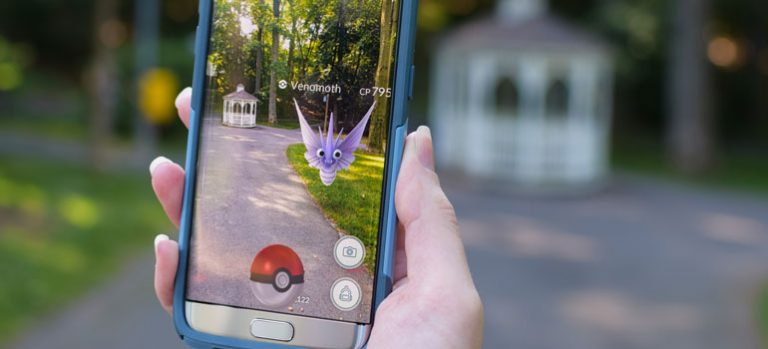Video games may have a reputation for attracting introverts, but when it comes to augmented reality games like Pokémon Go, extroverts tend to be better players.
That’s the key finding of a new University of British Columbia psychology study, the first to look at the impact of players’ personalities, social competence and social anxiety when playing the hit mobile game.


Adri Khalis
“Since Pokémon Go requires players to leave their homes and interact with others, we found that people with strong social skills tend to be more successful at the game,” said Adri Khalis, the study’s lead author and graduate student in the UBC department of psychology. “This counters the prevailing stereotype that gamers are socially awkward. Rather, we think that modern video games, such as those involving augmented reality, have a lot of social aspects and therefore require players to have good social competence to do well playing them.”
Researchers recruited 101 Pokémon Go players between the ages of 18 and 28 to take part in the study. After completing questionnaires about their personality, social anxiety and social competence, participants played the game for 20 minutes.
Through observing players’ performance in the game, the researchers found that extroverted participants caught more Pokémon, visited more PokéStops and travelled greater distances than players who described themselves as socially introverted.
“We found that players who are socially anxious might be self-conscious and less likely to engage in the game because they may fear others are judging them,” said Khalis. “They may hesitate to play when others are watching and are less likely to collaborate with fellow players, like pointing out nearby Pokémon or sharing tips.”
The researchers are now looking at ways for modern video games to be designed in a way that helps people who struggle socially. For example, video games could be designed in a way in which social features become increasingly more involved as the game progresses, said Khalis.
“In the beginning, players might only need to communicate with a person through text, but as the game reaches a higher level, they may have to actually be physically close to other players to collaborate and win,” he said. “The game provides a context in which interacting with others might be easier than walking up to a stranger and striking up a conversation from the get-go.”


Amori Mikami
As modern video games become more popular, it’s important to understand how individual personality traits influence behaviour, said Amori Mikami, the study’s senior author and associate professor in the UBC department of psychology.
“Being socially confident not only helps us succeed in face-to-face, ‘real world’ activities but it also seems to apply to video games,” said Mikami. “As these games become more popular, we have a unique opportunity to examine the individual personality traits and characteristics that influence behaviour in a digital context.”
The study was published online in Personality and Individual Differences.
This news release was originally published on UBC News.



